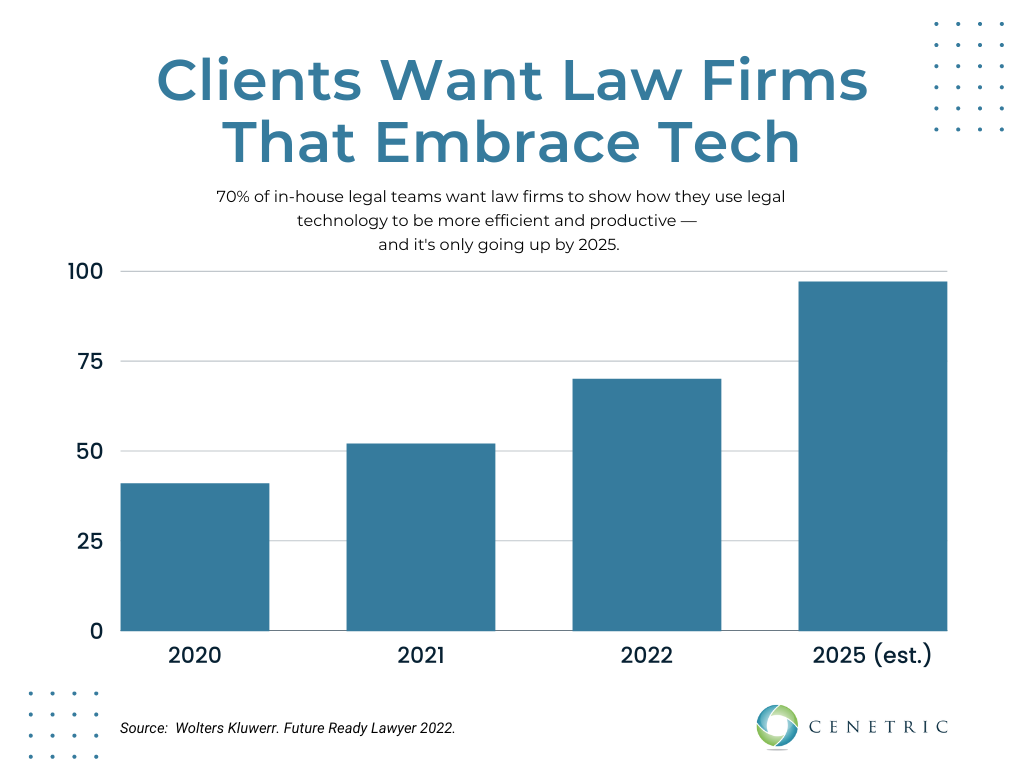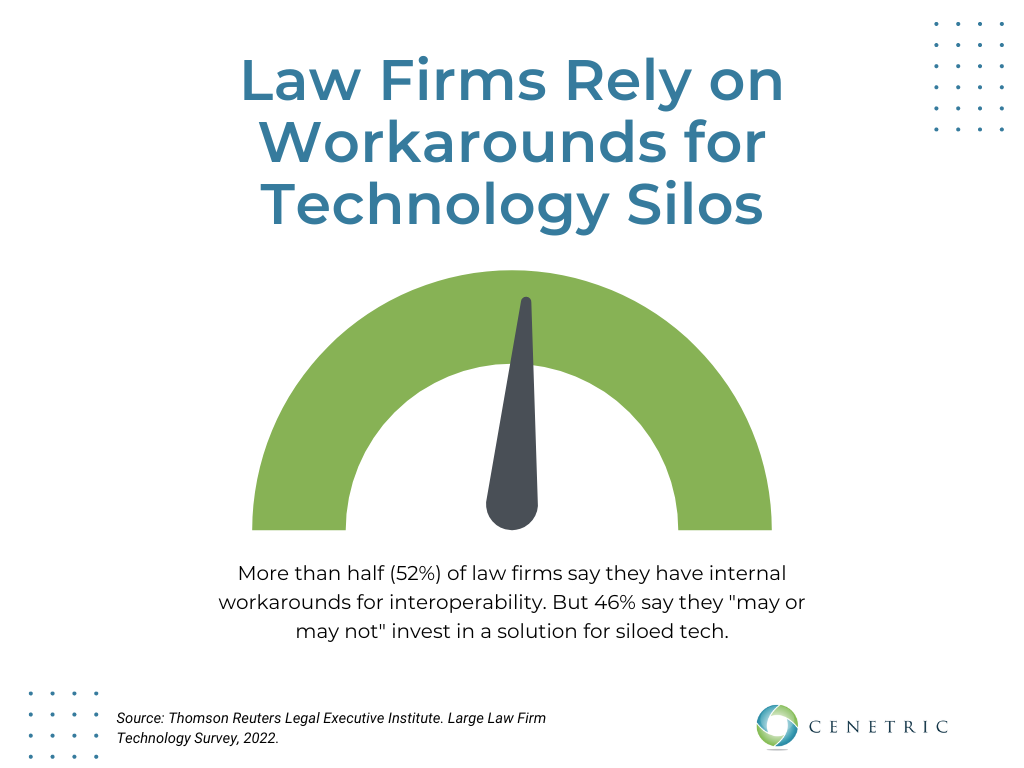
3 Ways Law Firms Can Embrace Technology to Get Ahead
Technology adoption has been notoriously slow in the legal field — but not for long, perhaps. Gartner reports that by 2025 legal technology budgets will increase to three times their 2020 levels.
Like many, your firm might be skittish about implementing new technologies. A Bloomberg Law study found that the top reasons firms haven’t moved as quickly as they’d like to with technology include:
- Lack of tech savvy among users (53%)
- Lack of familiarity with available technologies (48%)
- Not enough time to learn the technology (39%)
- Lack of a well-defined strategy in place (32%)
- Current technologies don’t integrate well with workflows (29%)
If these or any other barriers to technology adoption by your law firm are holding you back, you’re certainly not alone. But there’s a big competitive advantage to using technology, and with the right IT experts by your side, you can do it with little hassle — and lots of success.
Competitive edge #1: Boost productivity
A 2022 survey by Wolters Kluwer revealed that 70% of in-house legal departments asked law firms they were considering working with to show how they use legal technology to improve efficiency and productivity in their work.
In 2021, that number was just 52% and only 41% in 2020. By 2025, it’s expected to be a request by nearly all in-house legal teams (97%).

Despite these high expectations, only 38% of the legal departments surveyed were satisfied with how the firm they work with uses technology. Also consider that just 37% of attorneys in a Dashboard Legal survey were satisfied with their firm’s use of technology. Technology for the automation of repetitive tasks was one of their highest-ranking desires, but they just aren’t getting it from their firms.
Give your potential clients and your team what they want. Automating your non-billable work creates more time for your attorneys to focus on delivering their expertise and shows your clients that you’re spending your time on work that creates positive results for them.
Worried about your team being able to use the new technology you implement? Put that concern aside by working with an IT firm that offers robust help desk support and emergency service to make sure you’re always getting the maximum value from your technology investment.
Competitive edge #2: Break down technology silos
Interoperability, or connecting the systems you use to do business, poses major challenges for many law firms. Disconnected systems lead to inaccurate, inefficient work, but there are significant challenges to overcome when addressing silos.
According to a 2021 Thomson Reuters Legal Executive Institute survey, 52% of law firm leaders say they use internal workarounds to deal with siloed technology. But 46% say they “may or may not” pursue a solution to the problem.
That leaves a lot of room for law firms that do de-silo their systems to get ahead. Benefits like better collaboration among teams, more productivity, faster research and reduced training time for new employees will give you the edge you need to outshine other firms.

Competitive edge #3: Invest in cybersecurity
One of the biggest reasons the Thomson Reuters survey participants cited for interoperability was data security. Nearly two-thirds (65%) said it was a major challenge for their firm and 52% said addressing it in the next year was critical.
Indeed it is. The sensitive data and information a law firm handles put it at enormous risk for a host of cybersecurity disasters, including data breaches, ransomware and phishing.
Despite the concern, law firms simply aren’t investing in the technology necessary to prevent these attacks. Bloomberg Law’s 2022 survey showed that just 40% of firms are using technology for privacy and cybersecurity and a mere 18% had invested in disaster recovery tools — numbers that are virtually unchanged from 2021.
Ransomware is an especially costly threat. Professional and legal services are the top industries targeted by ransomware attackers for two reasons:
- Attackers perceive that firms in these industries are more likely to pay a ransom quickly to avoid disruption and loss of sensitive client data.
- Law firms often run on systems with software that isn’t regularly updated or patched — a virtual welcome mat for ransomware attackers.
If you do fall victim to ransomware, not only do you incur the cost of the ransom itself, but also the enormous cost of lost time, productivity and data.
The American Bar Association recommends that firms protect themselves from cyberattack by moving to cloud-based systems, which are far more secure than on-premise solutions. They also recommend creating a disaster recovery plan to help you move swiftly to minimize and repair damage if an attack does occur.
Work with an IT partner that makes it easy
You know that you need to make better use of technology to win in the ultra-competitive legal landscape. But if it all seems too overwhelming and you don’t know how to start, the right IT experts will not only make it easy — they’ll make it a success.
IT strategy and consulting from Cenetric experts will ensure you use your technology budget wisely where it will have the biggest impact — and deliver the best protection for your firm. Working with law firms in Kansas City and beyond, Cenetric has the experience and availability you need to make legal technology work for you.
